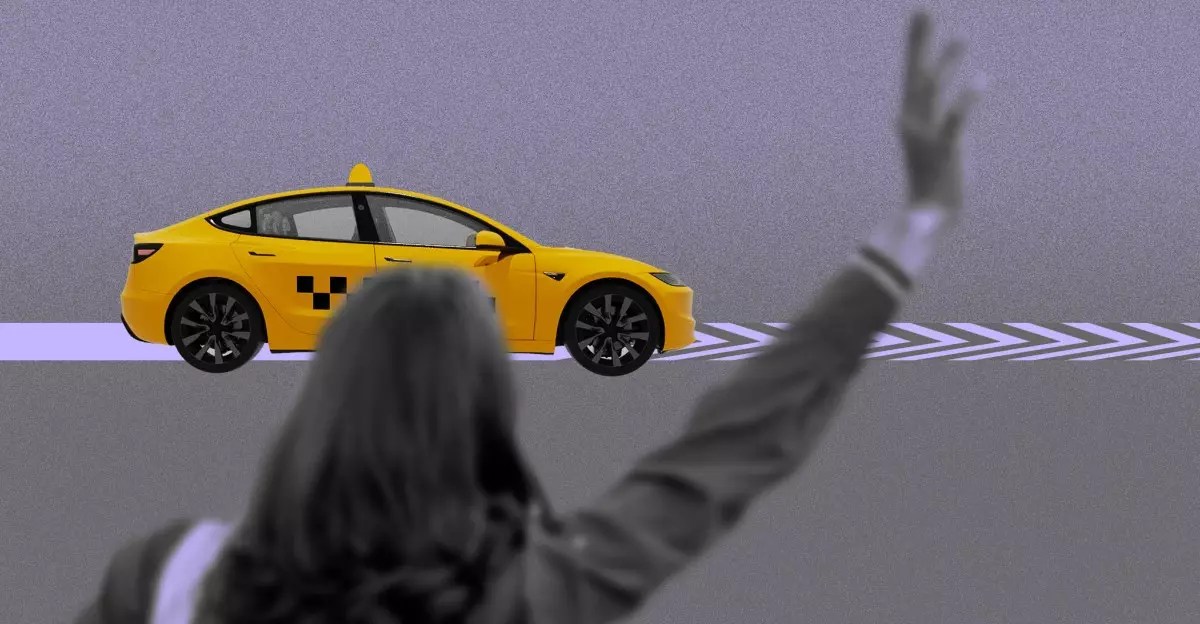In recent years, we’ve witnessed a paradigm shift in the landscape of technology journalism, particularly evident in the activities surrounding Tesla’s latest robotaxi launch in Austin, Texas. The event marked a momentous occasion for a company that has, for years, prided itself on producing ground-breaking technology, yet it was notable for a different reason. Instead of conventional journalists and tech analysts being the primary voices at the event, it was primarily dominated by Tesla influencers and ardent supporters of Elon Musk. These individuals wield considerable power over perceptions of Tesla’s innovations, but at what cost to genuine journalism?
For many, journalism isn’t just about reporting facts; it also entails scrutinizing claims, providing balanced perspectives, and challenging narratives. Yet, at the Austin robotaxi event, traditional reporters were sidelined, not just through exclusion but through outright mockery from the fanbase—a reflection of a growing divisive culture within tech communities. The act of questioning, which is fundamental to journalistic integrity, is not only frowned upon but actively discouraged among Tesla’s supporters. It creates an environment where critical inquiry is stifled and dissenting voices are silenced, often replaced by a singular narrative touted by enthusiastic influencers.
The Cult of Personality Surrounding Elon Musk
Elon Musk’s relationship with the media deserves close scrutiny. Over time, he has cultivated a particular fervor that breeds deep loyalty among his followers and a palpable animosity towards traditional media. Musk’s dismissal of journalists and their inquiries has fostered a culture where media outlets, especially those that dare to provide critical assessments, are seen as the enemy. In this context, it becomes easy to understand why influencers, who align closely with Musk’s vision, feel empowered to mock and undermine genuine questions about Tesla’s offerings.
Influencers, such as Kim Java and Zack—who have gained significant followings on platforms like X (formerly Twitter) and YouTube—have embraced this narrative wholeheartedly. Java herself was quoted about turning down major media outlets to preserve what she described as “controlling her own narrative.” This self-serving approach emphasizes social media’s potential for creating echo chambers, where supporters amplify their voices without contestation, creating an alternative reality that can obscure the truth.
Furthermore, the phrase “we are the media now” serves as a rallying cry for these influencers, redefining journalism to fit their agendas. They have transitioned from consumers of information to self-styled journalists, but with a marked departure from the ethical standards that traditionally define the field. This leads to a peculiar form of corporate propaganda, where information is curated to promote a favorable brand image devoid of rigorous scrutiny.
The Dangers of an Echo Chamber Environment
The implications of this influencer-driven narrative stretch beyond mere marketing tactics; they pose a serious risk to accountability in the tech industry. Experts like Joan Donovan and Ed Niedermeyer emphasize that events like the robotaxi launch strip away the transparency that is vital for any significant technological rollout. As the Tesla community becomes increasingly insular, it becomes possible to overlook flaws in the technology itself, dismissing legitimate concerns in favor of maintaining a favorable image.
Niedermeyer’s observations about Tesla’s influence over forums like r/SelfDrivingCars highlight how narratives can be artificially shaped to align with corporate interests. When threads about dissenting opinions are flooded with promotional content or outright disinformation, it underlines the peril of a community that becomes less about genuine discourse and more about allegiance to a brand. This kind of environment cannot support a robust examination of Tesla’s innovations, leaving potential users unaware of various opinions and safety concerns surrounding products that may not be ready for widespread adoption.
Furthermore, Tesla’s history of minimizing direct communication with traditional media only intensifies the concern. By effectively abolishing their press relations team and allowing influencers exclusive access to key events, the company fosters a controlled message devoid of external critique.
Where Do We Go From Here?
As we navigate this increasingly complex relationship between technology, media, and the public, the question remains: how long can this influencer-led approach sustain the weight of corporate scrutiny before the inevitable backtracking begins? If media narratives are continuously crafted within a bubble, any significant misstep—whether it be a safety concern or a technological failure—will likely unleash a wave of scrutiny once the limits of blind loyalty have been exceeded.
Should Tesla wish to realize Musk’s bold vision of widespread autonomously-driving robotaxis, it may need to reassess its media strategy. The company must engage more openly with critical voices rather than limiting dialogue to a supportive fanbase willing to drown out dissenting opinions. Only through this engagement can Tesla reclaim a reputation rooted not just in loyalty, but in trust, accountability, and transparency—three elements that form the bedrock of effective journalism and true innovation.


Leave a Reply